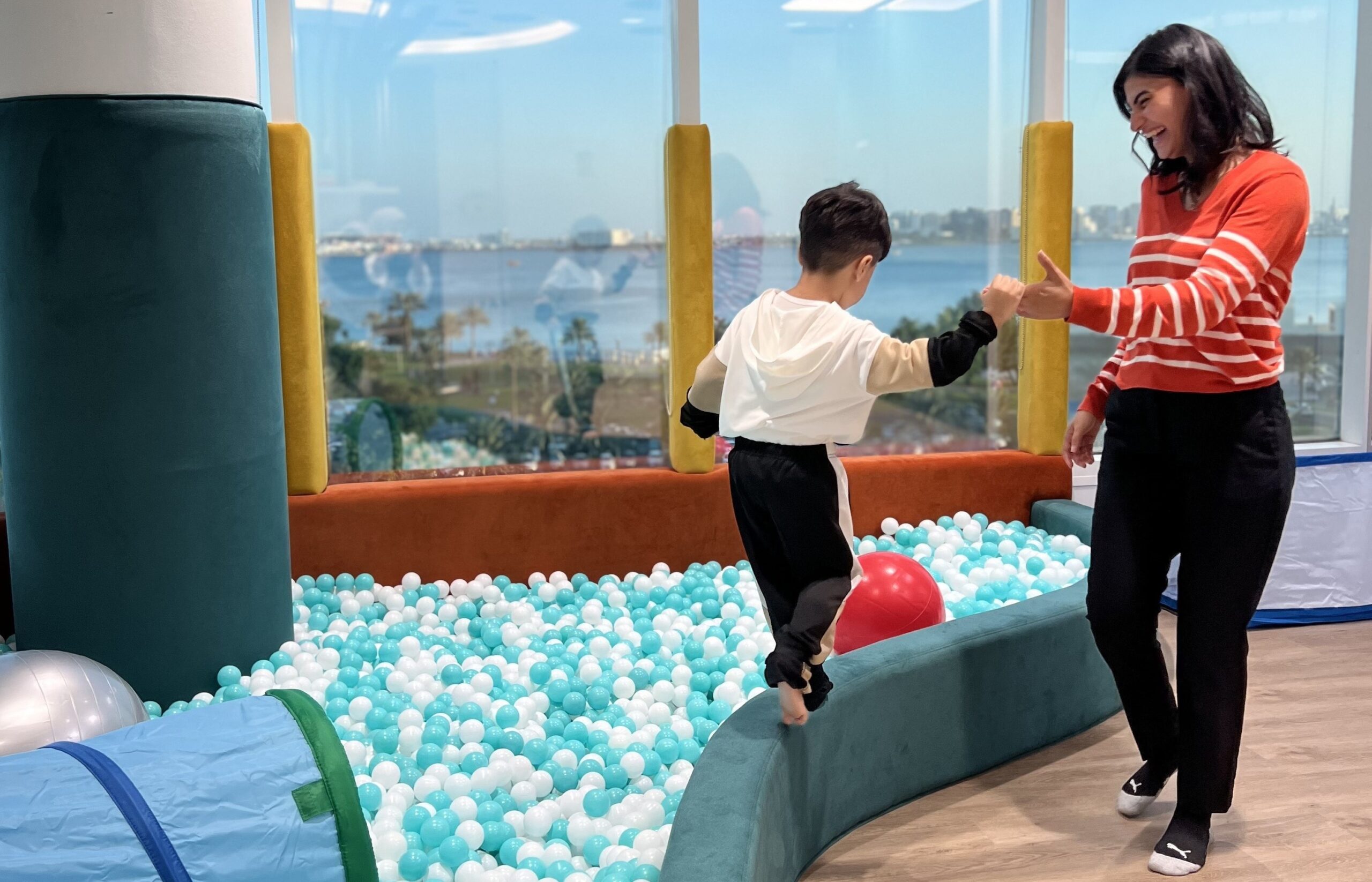OCCUPATIONAL THERAPY

At Amali clinic, we understand that every child is unique and may face different challenges in their developmental journey. Occupational Therapy (OT) is a type of therapy that helps children develop the skills they need to do everyday activities—also known as “occupations”—that are important for their growth, learning, and overall well-being. These activities can include things such as playing, learning at school, getting dressed, eating, and socializing with others.
Our team of skilled and compassionate pediatric occupational therapists is here to provide personalized care tailored to each child’s individual needs. Whether your child is struggling with sensory processing issues, fine motor skills, coordination, or developmental delays, we are committed to providing a supportive and engaging environment that fosters growth and progress.
1. Sensory Processing Therapy
Children with sensory processing challenges may have difficulty responding appropriately to sensory input (like touch, sound, or movement). We offer sensory integration therapy to help children better manage and respond to sensory stimuli, improving their ability to function in everyday situations.
2. Fine and Gross Motor Skills Development
Improving motor skills is a key part of occupational therapy. We work with children to enhance their fine motor skills ( e.g. handwriting, drawing, buttoning clothes, and using utensils) and gross motor skills (e.g coordination, balance, and mobility). This helps children gain independence in both academic and everyday tasks.
3. Feeding and Oral Placement Therapy
Children with oral motor and sensory feeding challenges often struggle with eating and swallowing. We provide specialized feeding therapy to help children develop the skills needed to safely and comfortably eat a variety of foods. In addition to provide families with practical tips and strategies for making mealtime more successful, such as how to encourage eating, create a calm eating environment, and address picky eating habits.
4. Visual Perception Skills Development
Improving visual perceptual skills is an important aspect of occupational therapy. We work with children to enhance their ability to recognize shapes, letters, and objects, as well as understand spatial relationships and focus on details. Strengthening these skills helps children succeed in activities like reading, writing, and navigating their environment, boosting their confidence and independence in daily tasks.
5. Handwriting and Academic Skills Support
Our therapists work with children to improve handwriting skills, pencil grip, and other academic skills. This can make a significant difference in school performance and increase a child’s confidence in their abilities.
